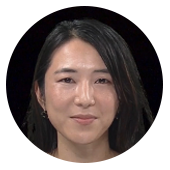Speaking at a July 26 ceremony marking the tragic deaths, the father of one of the residents pledged to help build a more inclusive society. "It is difficult to find answers to the question of what needs to be done, but we must make the effort," said Otsuki Kazuma.
His son was inside the building when the killing spree took place at the Tsukui Yamayuri En care home that has been demolished and rebuilt. The site now hosts a memorial to those who died in one of Japan's worst mass murders.
Twisted view
In 2016, former care-home employee Uematsu killed 19 residents as they slept, and injured 26 others.
He had a twisted view of people with disabilities, claiming that those who cannot communicate with others had "no value" and could "only bring misfortune." The 32-year-old was sentenced to death in March of 2020.
Although his ideas drew widespread expressions of disgust, tens of thousands of people went online to support him.

Discrimination lingers
Sociologist Ishiwata Kazumi says less extreme but still discriminatory ideas remain common in Japan. "People think they can't be different from others or feel they can't fall behind in Japanese society," she says. "In fact, those who do are clearly excluded from society."
Cases of abuse directed at people with disabilities have not fallen in number since the attack. The tally confirmed by local governments in fiscal 2020 was 2,400 according to the Ministry of Health, Labor and Welfare.
That was a record high, although officials say the rise in numbers is mainly because greater awareness is leading more people to report cases.
But there is still a fear of being singled out. Police have never disclosed the names of Uematsu's victims, at the request of their relatives. Most of the wounded and families of those killed have chosen to remain anonymous out of fear of further discrimination.
The names of seven of the victims are engraved on the memorial. Officials say they will add more names if they receive requests from family members.

Drawing people into the community
Experts blame exclusion for playing a role in the stigma attached to those with disabilities.
In Japan, people with intellectual disabilities have long been sent away to remote facilities or schools. But Ishiwata says the best way to combat prejudice is to encourage diversity.
"To make people with disabilities part of the community should be a matter of course," she says. "It's very important that they are in kindergartens and schools so that everyone becomes accustomed to inclusivity."
It's a sentiment that rings true for those most familiar with the tragedy. Prefectural Governor Kuroiwa Yuji says the only way to move past Uematsu's hatred is to address it head on. "In order to prove how bigoted and wrong his thinking was, we must create communities where everyone can live as they want."

